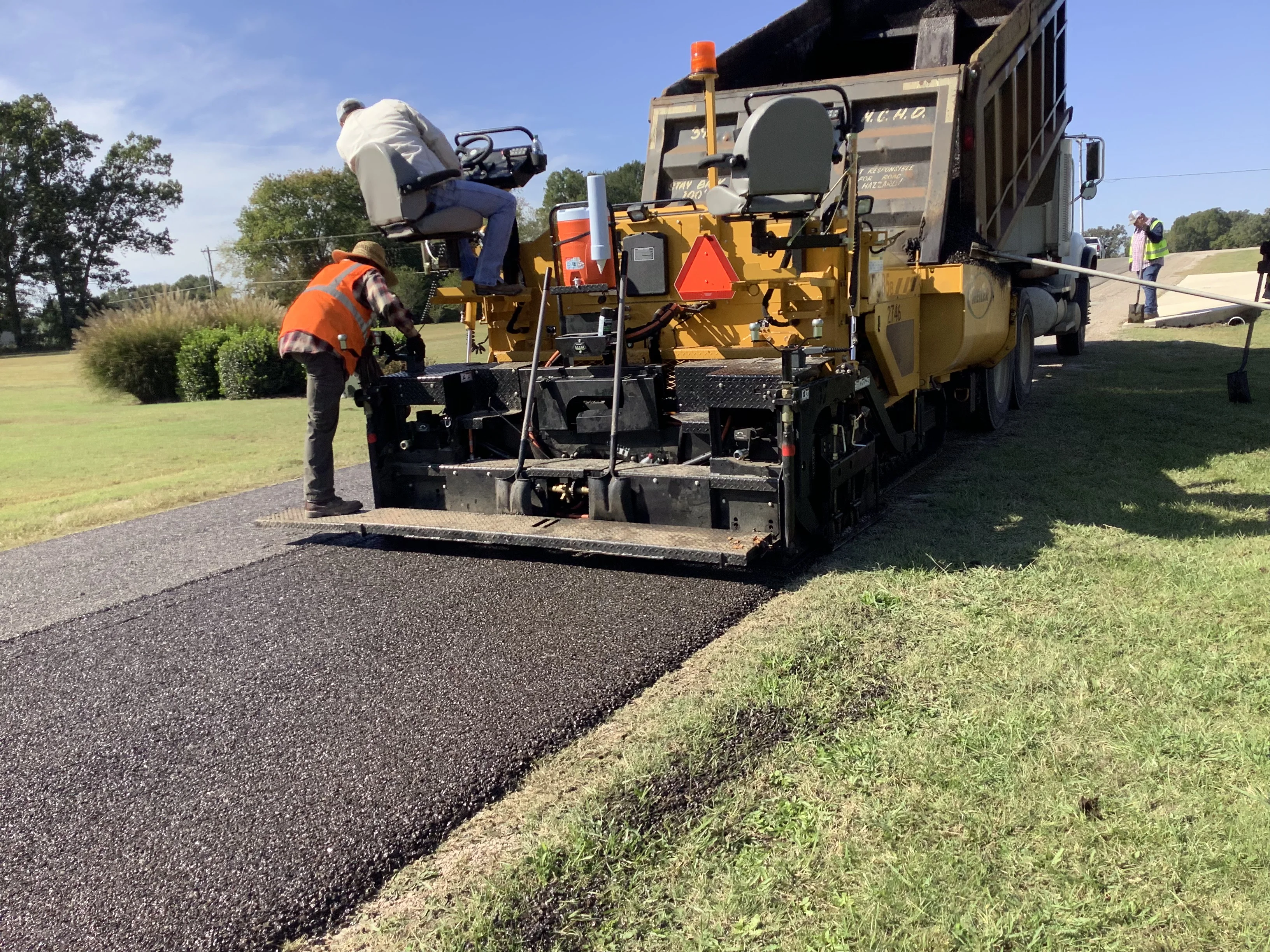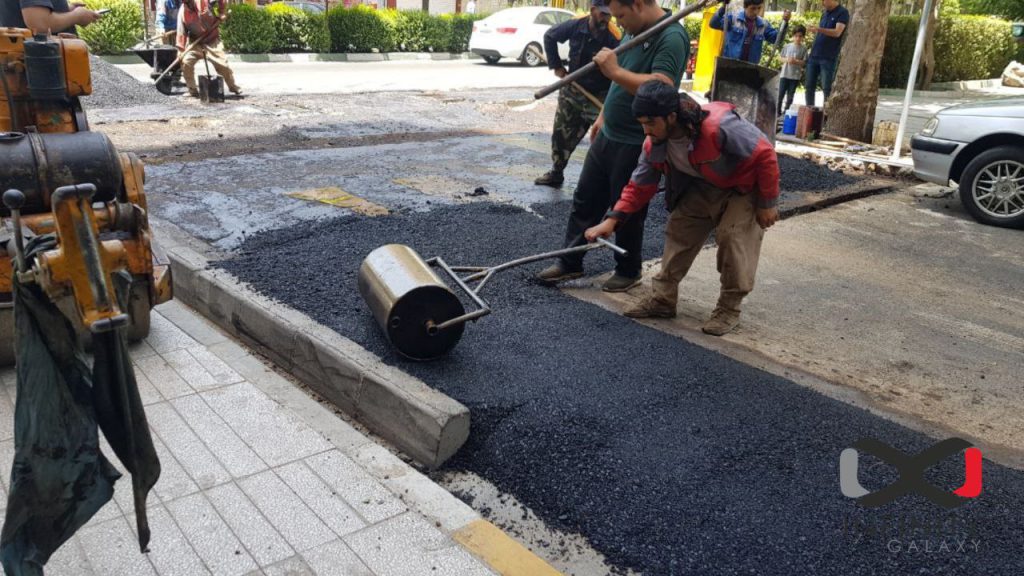Transform Your Pavement: Cutting-edge Asphalt Repair Approaches
Transform Your Pavement: Cutting-edge Asphalt Repair Approaches
Blog Article
Cold Mix Asphalt: Changing the Way We Develop Roadways
As the facilities sector continues to progress, the use of cool mix asphalt offers a promising change in road building and construction methods. Its adaptability to different weather and sustainable features have triggered passion in the building sector. The innovative residential or commercial properties of chilly mix asphalt are challenging standard road-building techniques, leading the way for boosted effectiveness and sturdiness. This transformative material is not just reshaping the building and construction landscape yet also increasing interesting concerns regarding its lasting effect on framework growth (Asphalt Repair).
Advantages of Cold Mix Asphalt
What benefits does cool mix asphalt deal over traditional hot mix asphalt in road building projects? Cold mix asphalt supplies numerous benefits that make it a recommended selection in specific situations. One vital benefit is its ability to be utilized in all climate condition, unlike hot mix asphalt which calls for specific temperature conditions for laying and blending. This flexibility enables for year-round construction, minimizing task timelines and costs associated with climate delays.
Additionally, chilly mix asphalt can be stockpiled for future usage, supplying comfort and cost financial savings for upkeep tasks. Its ease of application, requiring no specific equipment or heating, makes it optimal for quick repairs and patching. Additionally, cold mix asphalt is more eco-friendly as it calls for less energy for manufacturing and produces lower degrees of greenhouse gases compared to warm mix asphalt. These advantages combined make chilly mix asphalt a flexible and reliable choice for various roadway building and construction projects.

Environmental Benefits
Cold mix asphalt's ecological benefits contribute substantially to its allure as a sustainable selection for roadway construction jobs. One of the crucial ecological benefits of cold mix asphalt is its lower carbon impact contrasted to hot mix asphalt. The manufacturing procedure of cold mix asphalt needs less energy since it can be manufactured and applied at lower temperatures, lowering greenhouse gas emissions. Additionally, cold mix asphalt is typically used recycled materials such as reclaimed asphalt sidewalk (RAP) and recycled asphalt tiles (RAS), further lowering the demand for new basic materials and diverting waste from land fills.
Furthermore, using cold mix asphalt can cause decreased power consumption throughout building due to its capability to be used making use of standard tools without the need for extra home heating processes. This not only reduces gas usage yet also reduces air contamination and improves air top quality in the bordering areas. By selecting cold mix asphalt for roadway tasks, building firms can make a favorable influence on the atmosphere while still making sure high-quality and durable roadway surface areas.
Adaptability in Weather Condition Conditions
In road building projects, the versatility of cold mix asphalt in different weather problems enhances its practicality and efficiency. Unlike warm mix asphalt, which requires heats throughout mixing and installation, chilly mix asphalt can be used in a variety of climate condition. Asphalt Repair. This flexibility makes it a beneficial alternative for roadway building in areas with extreme temperature levels or unpredictable weather condition patterns
Cold mix asphalt stays practical also in winter, permitting construction jobs to proceed during cold weather when warm mix asphalt might not be a possible choice. Its capacity to establish and heal look here without the requirement for high temperature levels guarantees that roadway repair and maintenance can be accomplished year-round, minimizing disturbances to web traffic circulation and decreasing look at this site general project timelines.
In addition, cool mix asphalt's strength to moisture makes it ideal for areas vulnerable to frequent rainfall or high humidity. Its adaptability and resilience enable it to endure expansion and contraction triggered by temperature level changes, contributing to longer-lasting roads that require fewer fixings over time. Generally, the flexibility of cool mix asphalt in different weather makes it a dependable selection for lasting and reliable roadway building and construction tasks.

Cost-Effectiveness and Sustainability
Taking into consideration the economic and ecological effects of road construction products, how does the cost-effectiveness and sustainability of cold mix asphalt contrast to typical choices? In terms of cost-effectiveness, cool mix asphalt generally calls for reduced manufacturing temperatures, minimizing power consumption and production expenses contrasted to warm mix asphalt.
The ability to recycle existing products into cold mix asphalt adds to a round economic climate technique, lowering the demand for virgin materials and lowering overall ecological influence. In general, the cost-effectiveness and sustainability of cool mix asphalt make it a promising option to standard road building products.
Influence On Road Resilience
Roadway sturdiness significantly affects the lasting performance and upkeep demands of asphalt sidewalks. Cold mix asphalt, with its one-of-a-kind qualities, has a significant impact on roadway longevity. One essential facet is the capability of cool mix asphalt to endure temperature changes without endangering its structural stability. This versatility helps the pavement to withstand cracking and rutting triggered by transforming weather problems, causing a longer life span for the roadway.
Furthermore, the chilly mix asphalt's improved resistance to moisture damage plays a crucial function in maintaining road resilience. Traditional hot mix asphalt is much more at risk to wetness seepage, which can compromise the sidewalk framework in time. In comparison, cool mix asphalt's composition enables it to much better resist water penetration, minimizing the chance of holes and other types of wear and tear.
Conclusion
In final thought, cool mix asphalt uses a plethora of advantages for roadway building and construction, consisting of ecological advantages, versatility in weather conditions, cost-effectiveness, and boosted road durability. Its capacity to be go to website made use of year-round and its lasting techniques make it a transformative alternative for producing roadways that are both resilient and eco-friendly. With its innovative approach and resilient outcomes, cool mix asphalt is changing the method we construct roads for a more sustainable future.
What advantages does cold mix asphalt offer over standard warm mix asphalt in road construction tasks? Furthermore, cold mix asphalt is extra ecologically pleasant as it needs less power for manufacturing and sends out reduced levels of greenhouse gases contrasted to warm mix asphalt. Asphalt Repair. Furthermore, cold mix asphalt is commonly made utilizing recycled materials such as reclaimed asphalt pavement (RAP) and recycled asphalt shingles (RAS), additional minimizing the need for new raw products and drawing away waste from land fills
Unlike warm mix asphalt, which calls for high temperature levels during mixing and installment, chilly mix asphalt can be utilized in a wide array of climate conditions. In terms of cost-effectiveness, cold mix asphalt commonly needs reduced production temperature levels, lowering power intake and manufacturing expenses compared to warm mix asphalt.
Report this page